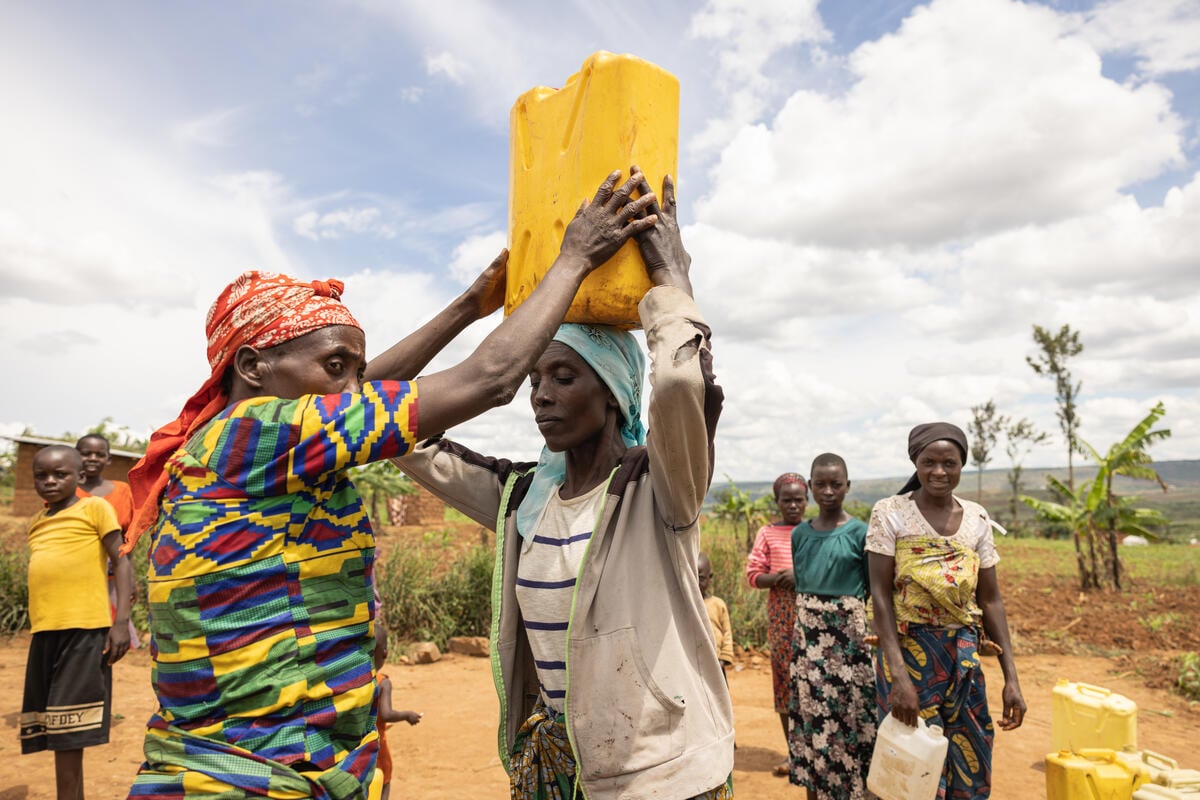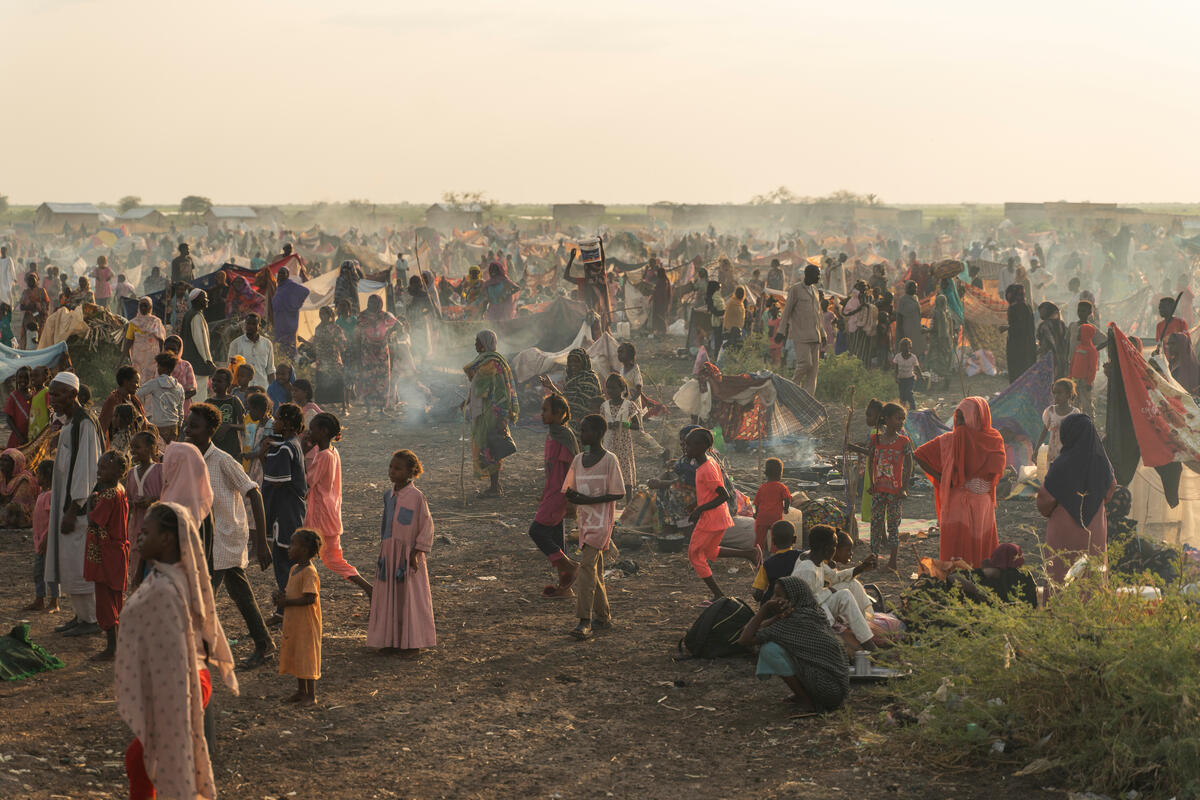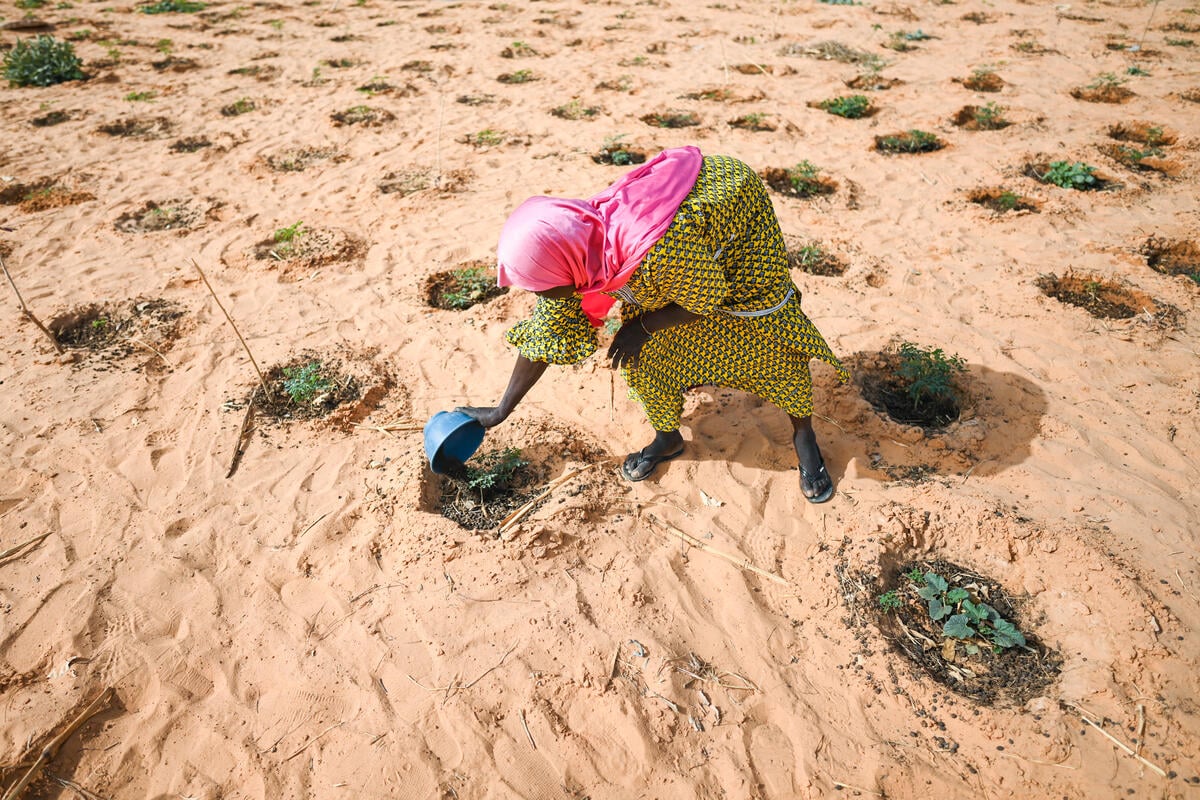Fragile humanitarian lifeline threatened by Chad unrest
Fragile humanitarian lifeline threatened by Chad unrest
Geneva, Saturday 25 November 2006
UN High Commissioner for Refugees António Guterres warned Saturday that an already tenuous humanitarian lifeline for hundreds of thousands of Darfur refugees and displaced Chadians could be jeopardised by a fresh outbreak of fighting in remote eastern Chad.
UNHCR staff reported gunfire early Saturday around the town of Abéché, from where the agency administers a dozen refugee camps scattered across a wide area of eastern Chad near the border with Sudan. There were also sketchy reports of other military movements elsewhere in the region. Saturday's fighting reportedly involved Chadian rebels.
"Given the remoteness and lack of infrastructure in eastern Chad, getting help to these hundreds of thousands of refugees and displaced people is difficult in the best of times," Guterres said Saturday after receiving reports from his staff in the region. "The humanitarian lifeline there is very, very fragile and we fear that continuing violence in the region could easily sever it, jeopardising the lives of thousands of Darfurians and Chadians who have already suffered too much. I appeal to all sides to bear in mind the enormous humanitarian needs we're already facing in Chad."
Altogether, the string of remote UNHCR camps in eastern Chad hold 218,000 Sudanese refugees from the war-torn Darfur region. Another 90,000 Chadians have been displaced by unrest in eastern Chad over the past year - including at least 15,000 since the beginning of November.
On Friday, UNHCR said thousands of recently displaced Chadians driven from their villages over the past month by bloody attacks on at least 23 villages in south-eastern Chad were in dire need of help. More than 220 Chadians were killed in the attacks, which witnesses said were carried out by armed Arab-led raiders on horses and camels using tactics identical to those of the notorious janjaweed in neighbouring Darfur. The attacks appear to have subsided over the past week, but most of the displaced are afraid to go home to their destroyed and abandoned villages.
UNHCR and other aid agencies on Friday were forced to abandon plans to distribute humanitarian aid to some of the thousands of displaced Chadians now gathered around the outskirts of the south-eastern town of Goz Beida following reports of military movements in the region. Goz Beida is an example of the difficulties faced by remote Chadian communities and humanitarian agencies trying to cope with the displacement crisis. The town of 8,000 residents now has some 15,000 refugees from Darfur living nearby in the UNHCR-run Djabal refugee camp, plus 11,000 previously displaced Chadians in nearby Gouroukoun camp, and now an additional 7,000 Chadians displaced over the past month.
Darfur refugees in the 12 camps in eastern Chad are also feeling increasingly threatened as the insecurity they fled in Sudan since 2003 now appears to have spread across the border. In addition to the Sudanese refugees and displaced Chadians, there are also 46,000 refugees from the Central African Republic in camps in southern Chad.








